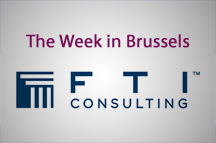 Rumours
Rumours
Election fever may be over but the results are still sinking in. Parliamentary corridors and policy circles in Brussels are rustling with rumours as leadership and committee positions are attributed. The right-wing European Conservatives and Reformists (ECR), led by MEP Syed Kamall, will potentially become be the third largest block in Parliament. Outright eurosceptics, despite inflated representation, struggle to fulfil all the conditions to create a group.
 The main pro-EU parties continue to pile pressure on the Council to adopt the Parliament candidate, Jean-Claude Juncker as President of the Commission. All eyes are set on the European Council of the 26 – 27th June which is expected to address the thorny question of the presidency as the UK campaign against the Luxembourger looks increasingly unlikely to succeed. Following the considerable inroads made by Eurosceptics in the election, Heads of State are playing high stake brinkmanship. Rejecting Juncker will anger the Parliament and cause an institutional crisis as both institutions go head to head. Endorsing Juncker will be felt as a slight by a growing part of the European electorate which has evidently called for an end to business-as-usual in Brussels and may push the UK towards the EXIT door.
The main pro-EU parties continue to pile pressure on the Council to adopt the Parliament candidate, Jean-Claude Juncker as President of the Commission. All eyes are set on the European Council of the 26 – 27th June which is expected to address the thorny question of the presidency as the UK campaign against the Luxembourger looks increasingly unlikely to succeed. Following the considerable inroads made by Eurosceptics in the election, Heads of State are playing high stake brinkmanship. Rejecting Juncker will anger the Parliament and cause an institutional crisis as both institutions go head to head. Endorsing Juncker will be felt as a slight by a growing part of the European electorate which has evidently called for an end to business-as-usual in Brussels and may push the UK towards the EXIT door.
Positions, politics and long term policy as the EU shapes the next five years
Whatever the stakes, work continues in Council and for the Commission. Businesses will want to know what member state representatives discuss on Monday the 23th when then they address the politicized aspects of the proposed Shareholder Rights Directive – such as increased shareholder say in corporate remuneration policy and related party transactions. NGOs are keen to see the Commission further encourage the transition towards a ‘circular economy’ in the new communication due on the 1st July. This is an initiative dear to Commissioner for Environment PotoÄnik and likely to be picked up by the next Commission. Global players will look to Beijing where Commission officials have opened a third round of talks aimed at signing a bilateral investment treaty, signalling the EU’s continued ambition to remain open for business – to all parties.
Tax, Foreign Policy and Energy
CFO’s are taking a hard look at tax structures, the new hot topic for policy-makers, pushed by popular support and shrinking state revenues. Witness the three in-depth investigations launched by the Commission to assess if the corporate income tax to be paid by Apple, Starbucks and Fiat Finance and Trade, comply with EU rules on state aid. From the prosaic financial fundamentals to dramatic instability in Iraq; a new government in a crisis-ridden Egypt and the worsening of the Ukrainian crisis following Moscow’s decision to cut off gas supply to Kiev, EU foreign policy will remain a critical area but one where the EU traditionally struggles. Some events seem to have been timed as a resounding endorsement of the European Commission’s new EU energy security strategy. Whatever the changes – or lack thereof - in the EU, the energy sector has skin in the game in Brussels for the long-haul.
More than ever, Europeans need a functioning Union and only strong Member State endorsement can achieve this. As Europe transitions in the summer and fall of 2014, EU Institutions and the private sector will continue working towards achieving progress on all fronts. But it will be up to EU Heads of State to show real political leadership. Failing that, the Union will leave Europeans behind.














